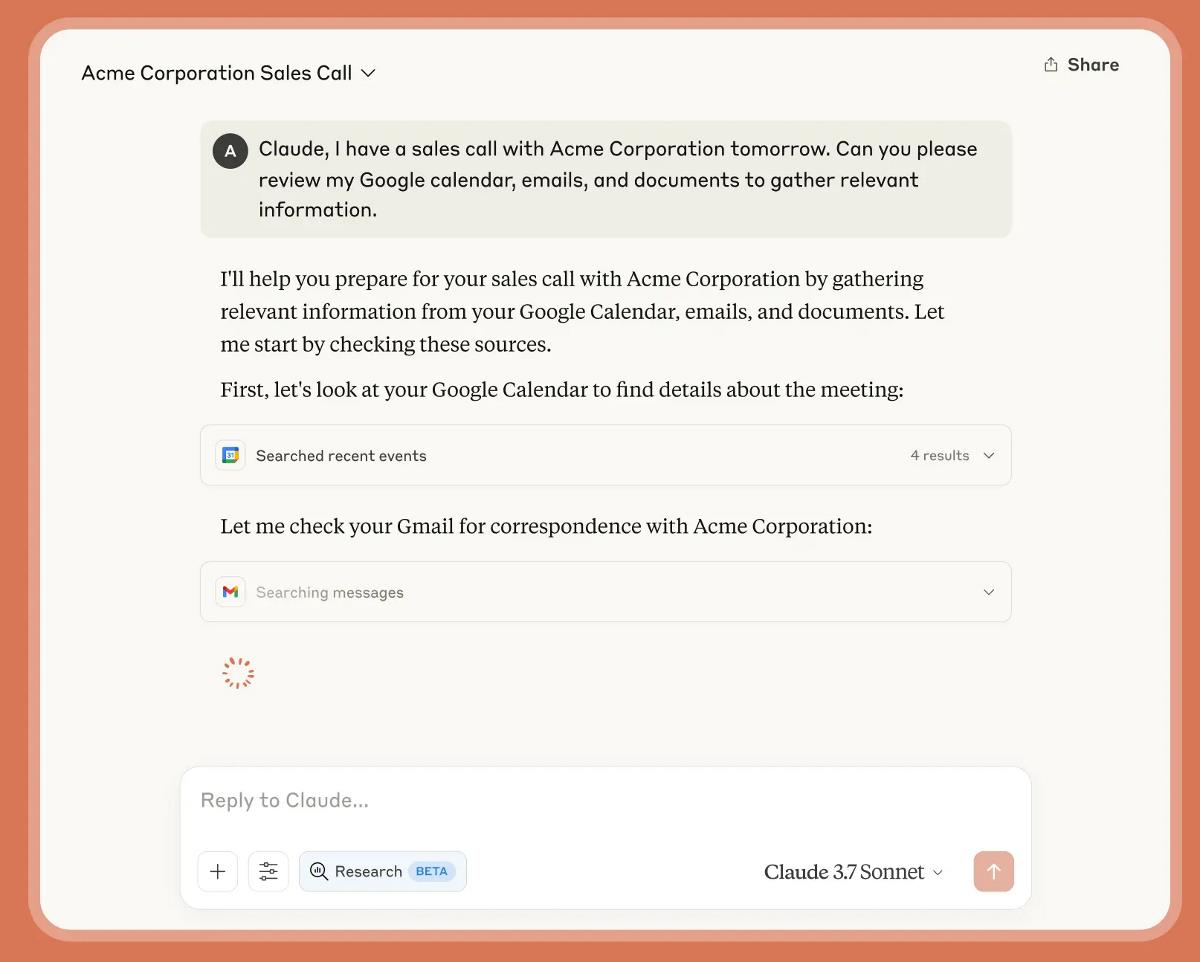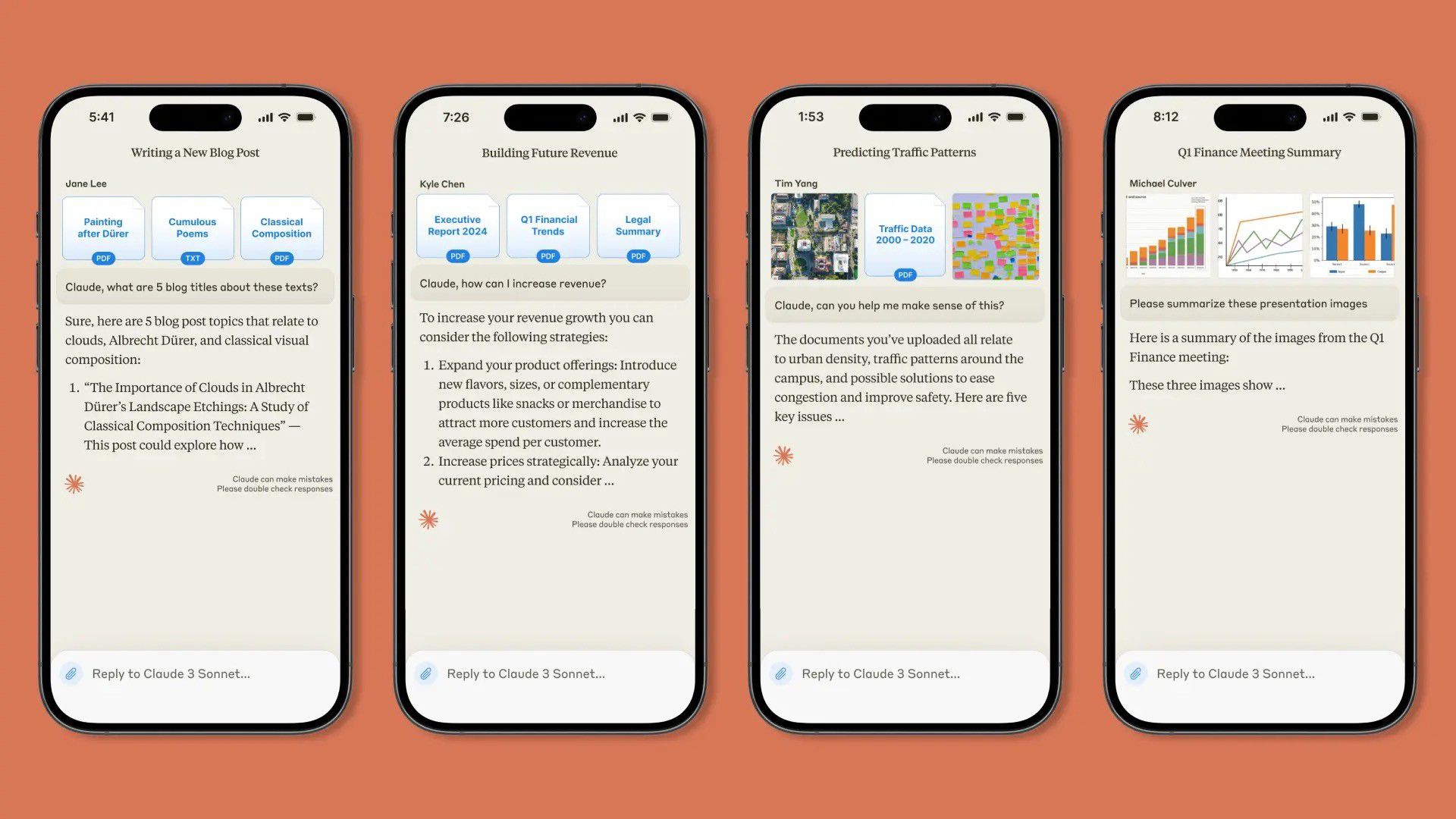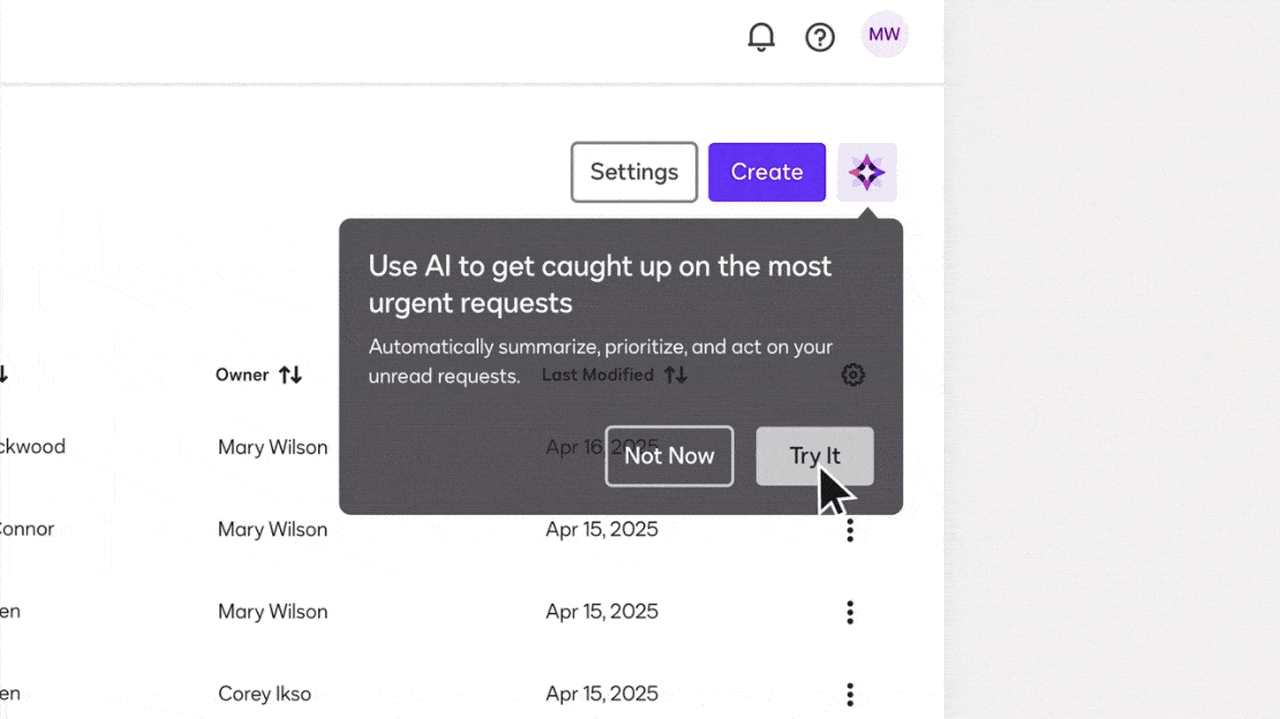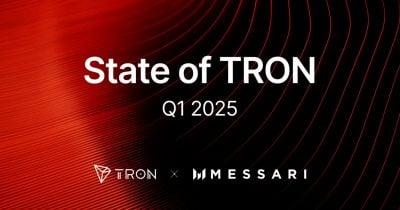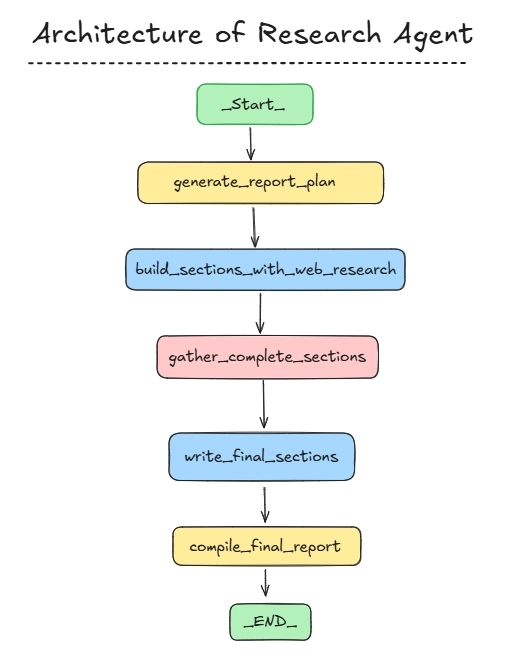AI: The Research Companion
Introduction In recent years, Large Language Models (LLMs) and Artificial Intelligence (AI) have experienced rapid advancements, driven by continuous innovations from leading AI companies. LLMs, in particular, have expanded their capabilities beyond text to include images and other multimedia formats, as seen in recent trends (like Ghibli). These advancements in the AI space can enhance productivity in our daily tasks, allowing us to perform them with greater efficiency and accuracy. The integration of AI agents and LLMs into various domains is transforming how we approach complex tasks. AI agents, for instance, can automate repetitive tasks, provide decision support, and collaborate with humans to enhance research productivity. As these technologies continue to evolve, they are expected to play a pivotal role in shaping the future of scientific research and beyond. Redefining Research using AI The integration of this AI agents into research environments can significantly enhance the pace and quality of scientific discovery. Here are some ways they can impact research workflows: Automated Tasks: AI agents can automate routine tasks, freeing researchers to focus on more complex and creative aspects of their work. Precision in Analysis: AI agents can analyze data with high precision, reducing errors that might occur due to human oversight. Informed Decision-Making: By providing comprehensive insights, AI agents help researchers make more informed decisions about their research directions. Exploration of New Ideas: AI agents can explore vast problem spaces, potentially leading to novel solutions and discoveries. Interdisciplinary Collaboration: agents can facilitate collaboration across disciplines. Research Agent - A Stepping Stone The Research Agent is an open-source web application designed to assist researchers by automating and optimizing various aspects of the research process. Leveraging advanced AI technologies, it streamlines tasks such as creating research plans, conducting literature reviews, and performing data analysis. Its core purpose is to empower users to generate comprehensive research on diverse topics, enabling them to focus on more strategic and impactful tasks. How it works The Research Agent employs the LangGraph research assistant framework to structure the workflow of the agent. This framework ensures that data is efficiently fetched, analyzed, and synthesized into final research output. Each node and edge within the agent's architecture is designed to ensure proper data handling and to generate effective responses for research queries. For generating and summarizing findings, the system utilizes LLAMA3 models, which are well-suited for this agent workflow. To enhance web search capabilities, various search APIs have been used, allowing the agent to retrieve content and provide effective, real-time responses, without getting blocked (aha! yes) thus making the research process more efficient and up-to-date. You can also checkout: Github Repo Live Demo Conclusion These advancements in AI space are revolutionizing all industries including the research landscape also by enhancing efficiency, accuracy, and innovation. As these technologies continue to evolve, they will undoubtedly play a pivotal role in shaping the future and unlocking new possibilities.
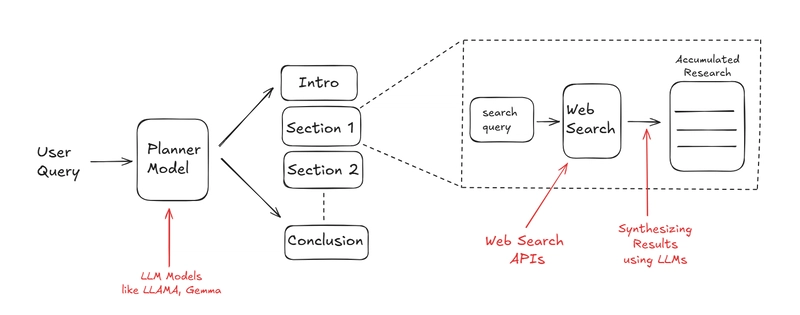
Introduction
In recent years, Large Language Models (LLMs) and Artificial Intelligence (AI) have experienced rapid advancements, driven by continuous innovations from leading AI companies. LLMs, in particular, have expanded their capabilities beyond text to include images and other multimedia formats, as seen in recent trends (like Ghibli). These advancements in the AI space can enhance productivity in our daily tasks, allowing us to perform them with greater efficiency and accuracy.
The integration of AI agents and LLMs into various domains is transforming how we approach complex tasks. AI agents, for instance, can automate repetitive tasks, provide decision support, and collaborate with humans to enhance research productivity. As these technologies continue to evolve, they are expected to play a pivotal role in shaping the future of scientific research and beyond.
Redefining Research using AI
The integration of this AI agents into research environments can significantly enhance the pace and quality of scientific discovery. Here are some ways they can impact research workflows:
- Automated Tasks: AI agents can automate routine tasks, freeing researchers to focus on more complex and creative aspects of their work.
- Precision in Analysis: AI agents can analyze data with high precision, reducing errors that might occur due to human oversight.
- Informed Decision-Making: By providing comprehensive insights, AI agents help researchers make more informed decisions about their research directions.
- Exploration of New Ideas: AI agents can explore vast problem spaces, potentially leading to novel solutions and discoveries.
- Interdisciplinary Collaboration: agents can facilitate collaboration across disciplines.
Research Agent - A Stepping Stone
The Research Agent is an open-source web application designed to assist researchers by automating and optimizing various aspects of the research process. Leveraging advanced AI technologies, it streamlines tasks such as creating research plans, conducting literature reviews, and performing data analysis. Its core purpose is to empower users to generate comprehensive research on diverse topics, enabling them to focus on more strategic and impactful tasks.
How it works
The Research Agent employs the LangGraph research assistant framework to structure the workflow of the agent. This framework ensures that data is efficiently fetched, analyzed, and synthesized into final research output. Each node and edge within the agent's architecture is designed to ensure proper data handling and to generate effective responses for research queries. For generating and summarizing findings, the system utilizes LLAMA3 models, which are well-suited for this agent workflow. To enhance web search capabilities, various search APIs have been used, allowing the agent to retrieve content and provide effective, real-time responses, without getting blocked (aha! yes) thus making the research process more efficient and up-to-date.
You can also checkout:
Github Repo
Live Demo
Conclusion
These advancements in AI space are revolutionizing all industries including the research landscape also by enhancing efficiency, accuracy, and innovation. As these technologies continue to evolve, they will undoubtedly play a pivotal role in shaping the future and unlocking new possibilities.




































































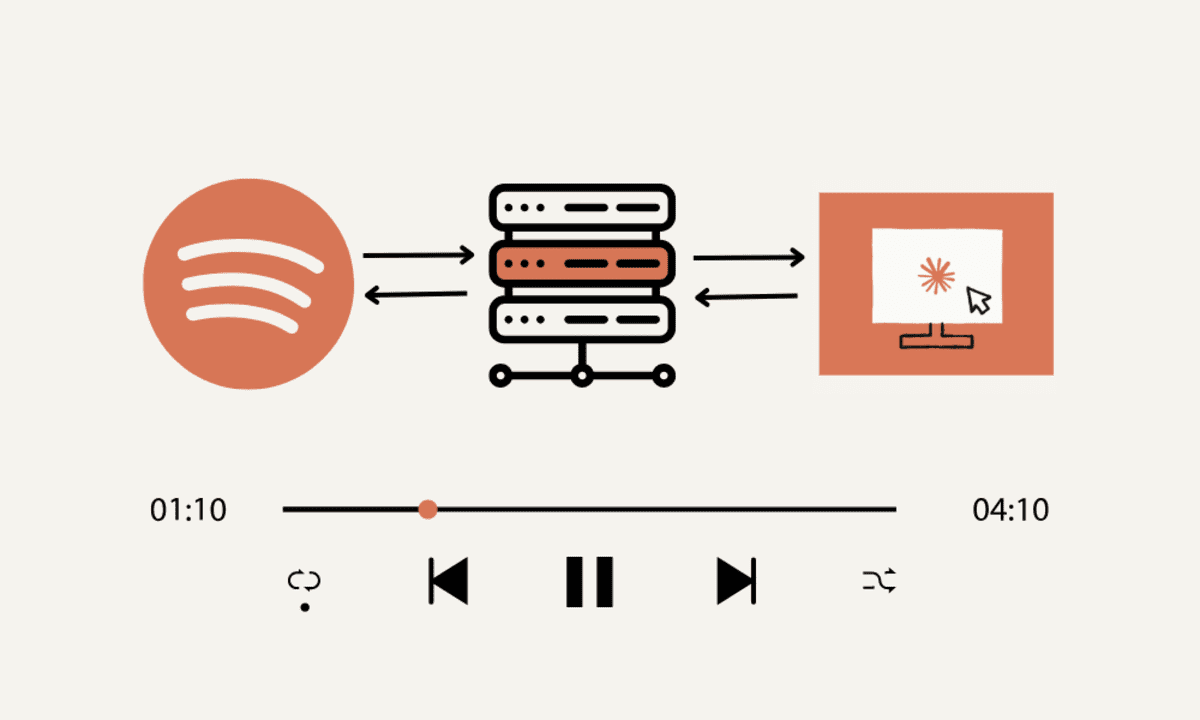




































































































![[The AI Show Episode 144]: ChatGPT’s New Memory, Shopify CEO’s Leaked “AI First” Memo, Google Cloud Next Releases, o3 and o4-mini Coming Soon & Llama 4’s Rocky Launch](https://www.marketingaiinstitute.com/hubfs/ep%20144%20cover.png)















































































































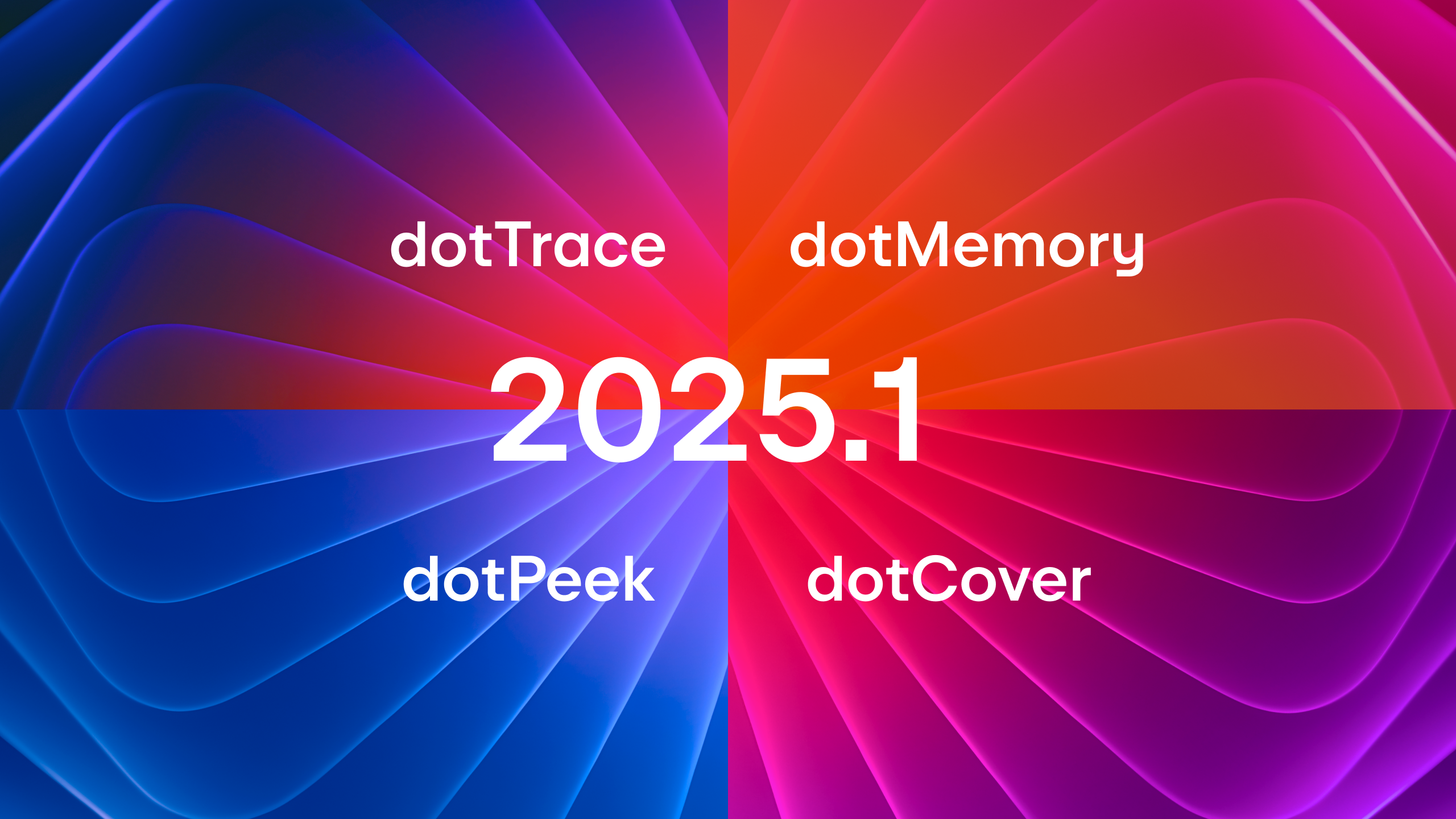



















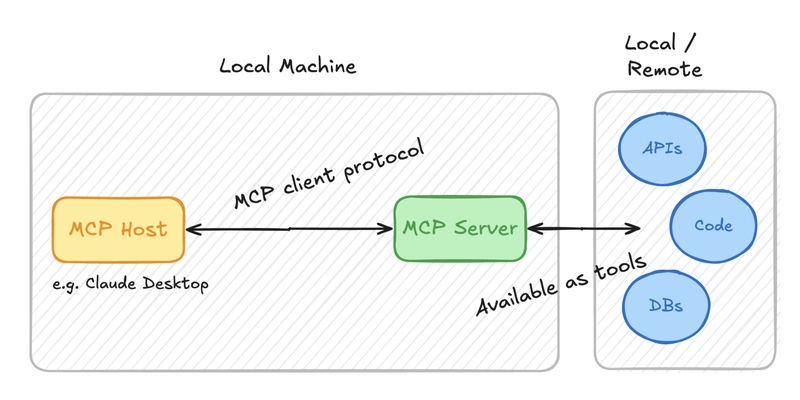



































































![Blue Archive tier list [April 2025]](https://media.pocketgamer.com/artwork/na-33404-1636469504/blue-archive-screenshot-2.jpg?#)


































.png?#)



.jpg?#)































.webp?#)


















































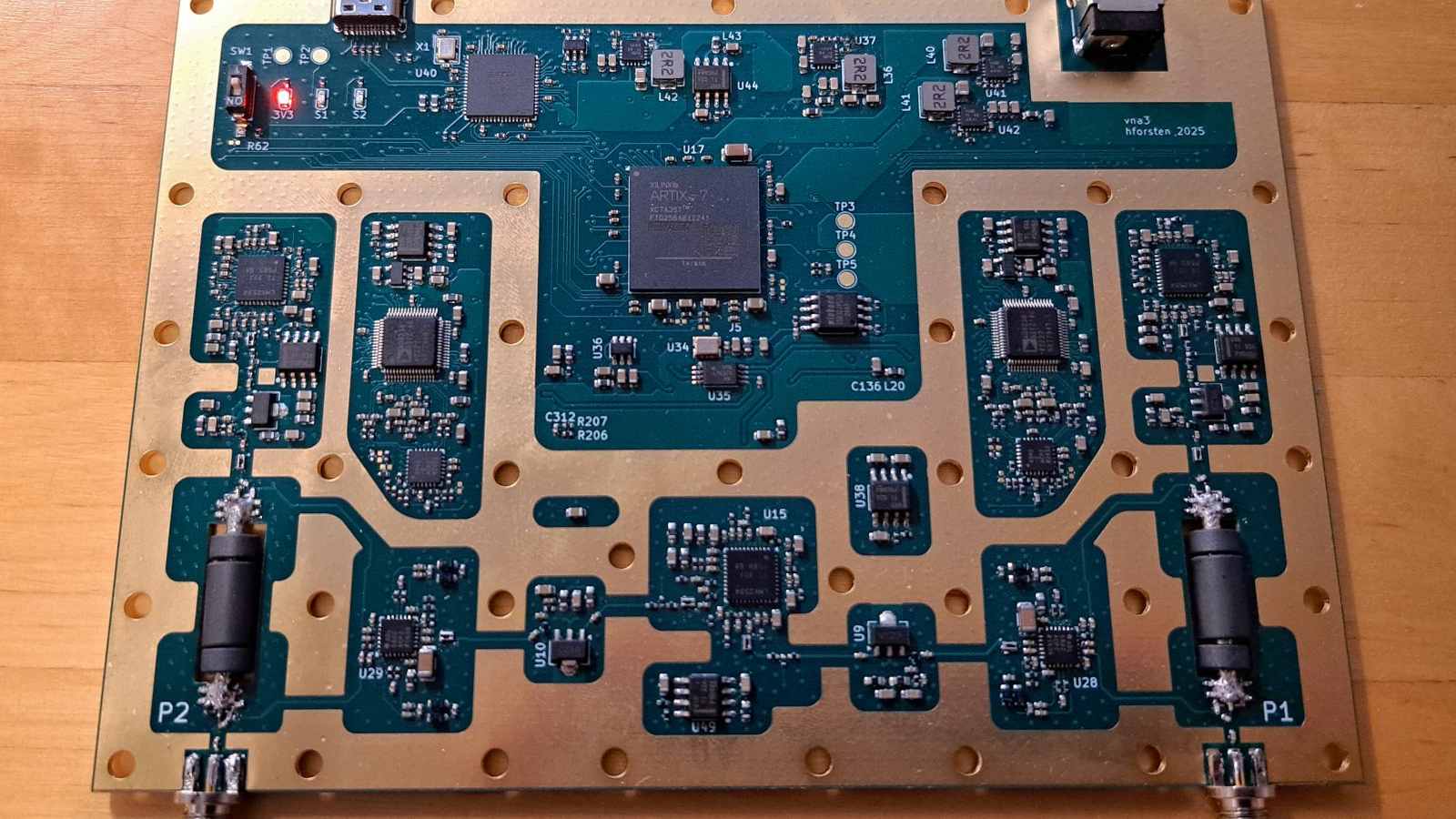
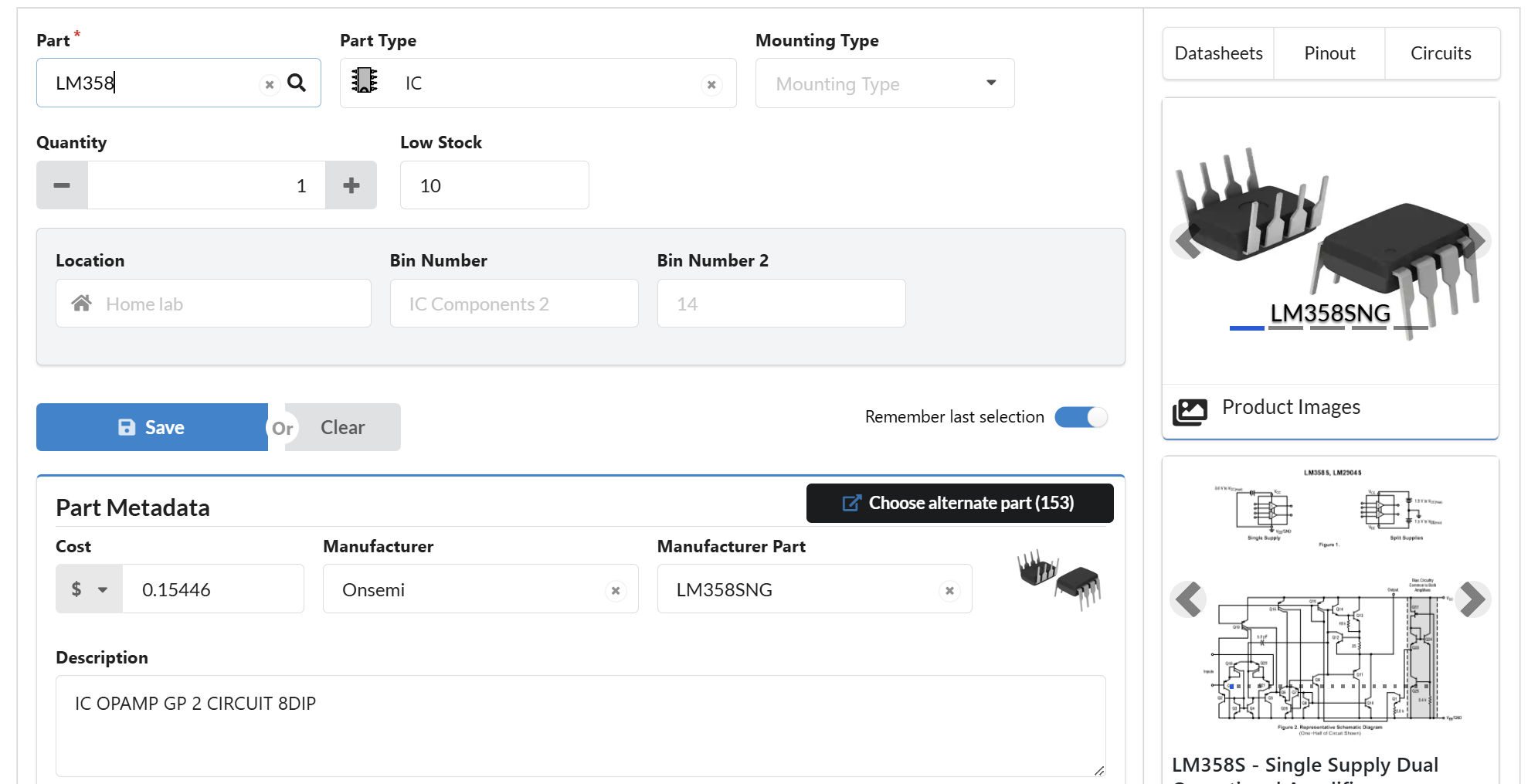
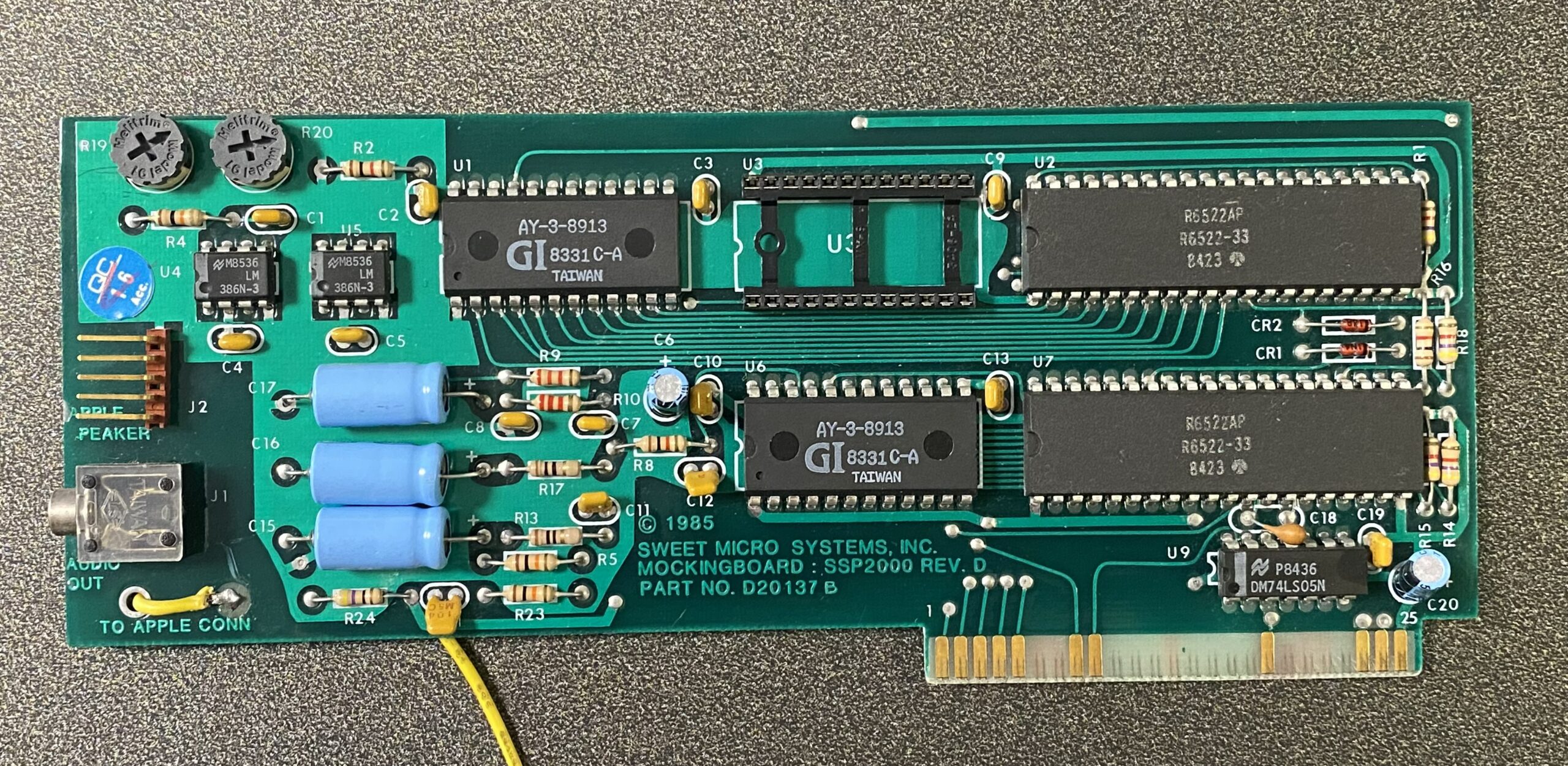


























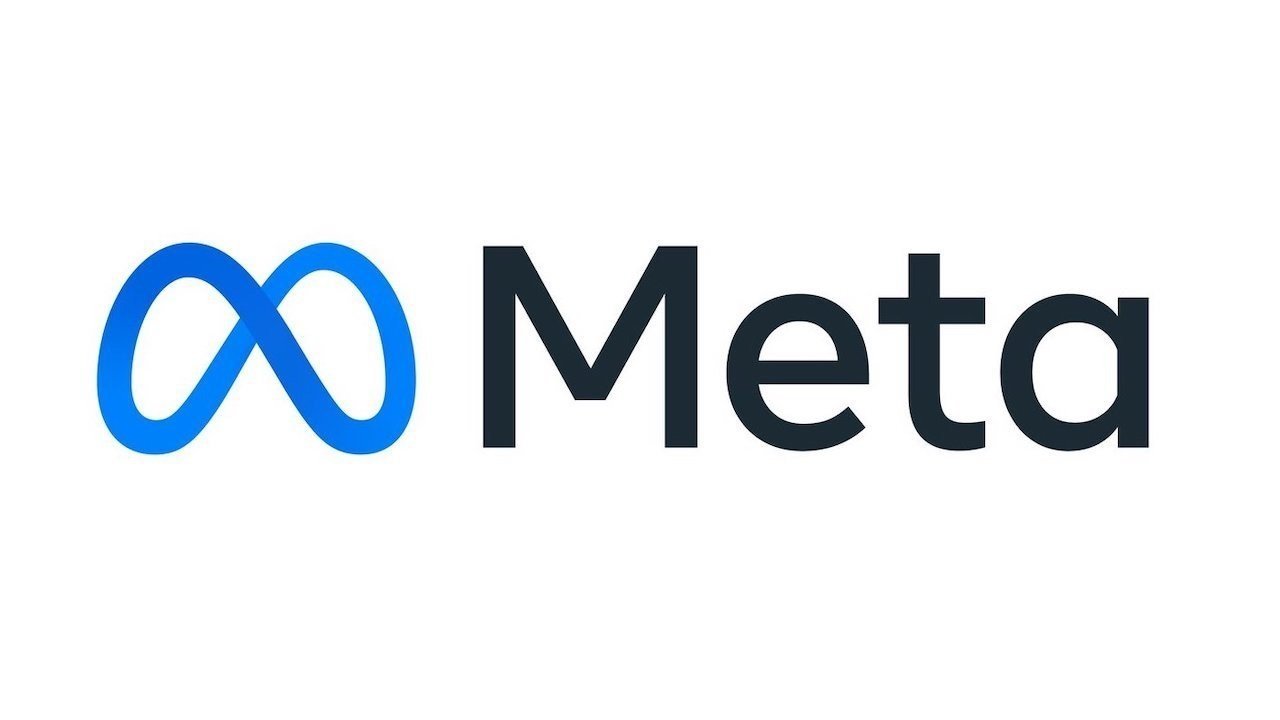








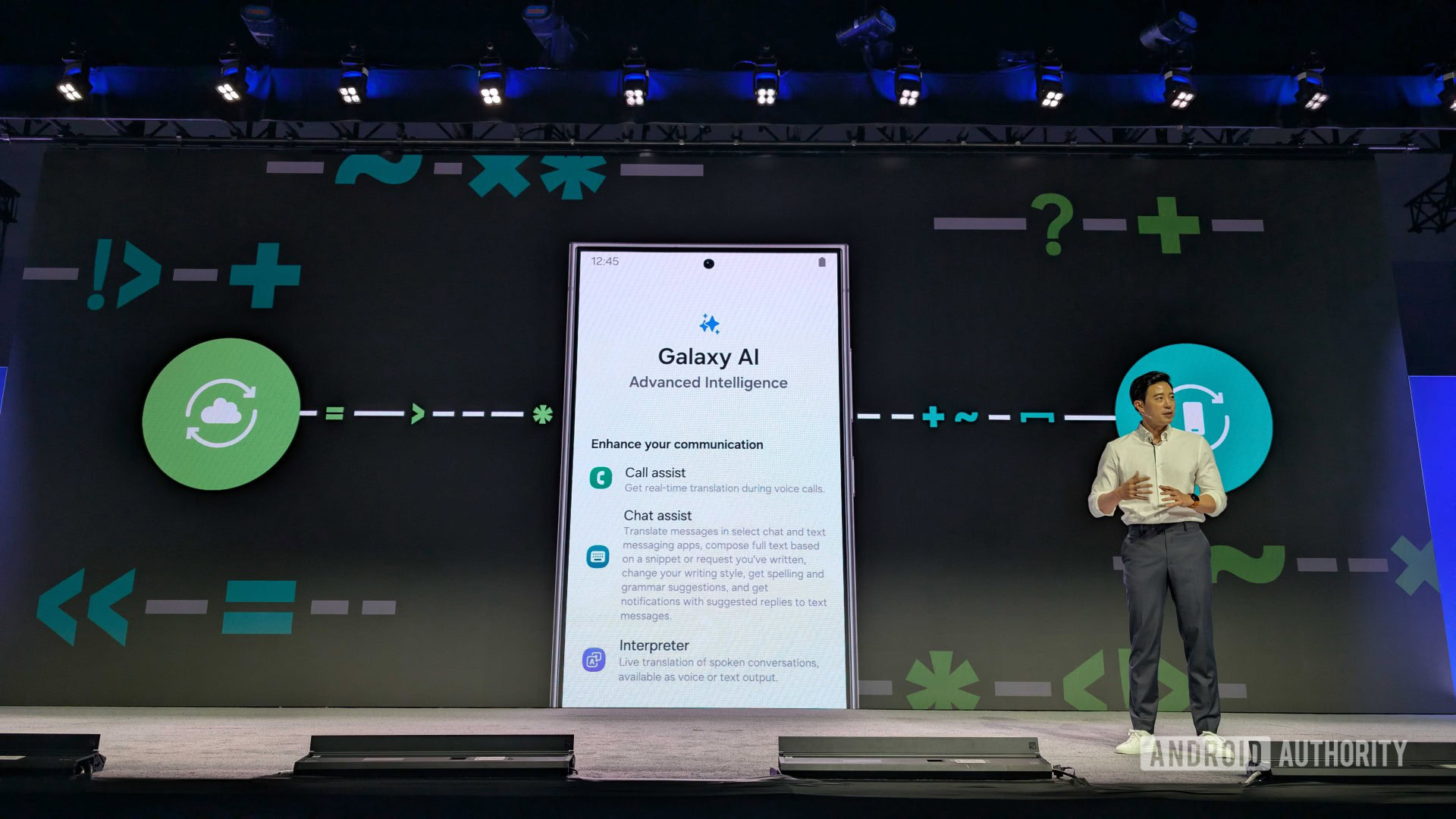



















![Apple to Split Enterprise and Western Europe Roles as VP Exits [Report]](https://www.iclarified.com/images/news/97032/97032/97032-640.jpg)
![Nanoleaf Announces New Pegboard Desk Dock With Dual-Sided Lighting [Video]](https://www.iclarified.com/images/news/97030/97030/97030-640.jpg)

![Apple's Foldable iPhone May Cost Between $2100 and $2300 [Rumor]](https://www.iclarified.com/images/news/97028/97028/97028-640.jpg)






















